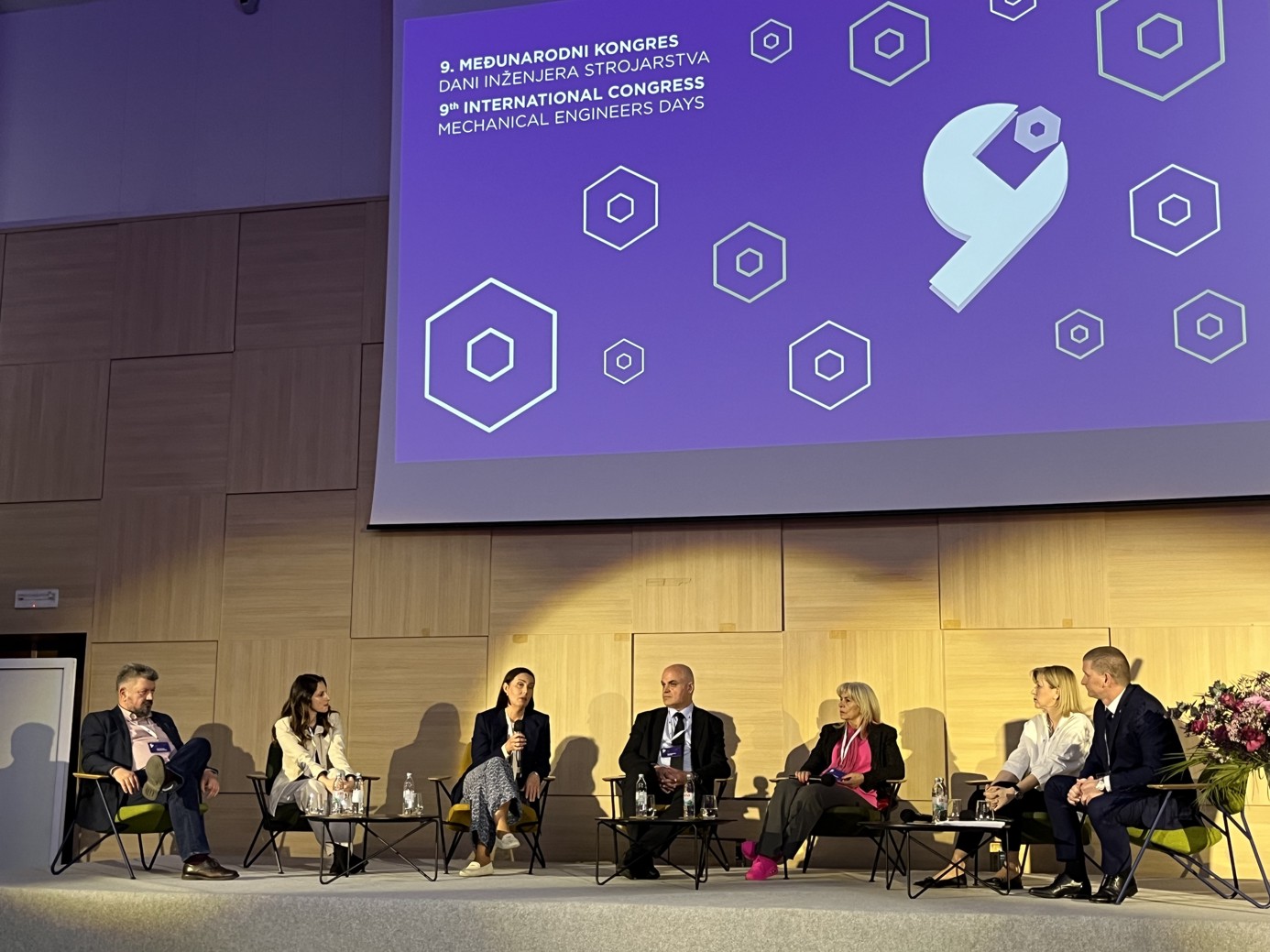Ivana Ivančić at the Mechanical Engineering Days
Geothermal energy in focus at the Mechanical engineering congress
Date publishedApril 16, 2025
Zagreb, April 16, 2025 – Ivana Ivančić, CEO of ENNA Geo, participated in the professional congress "Mechanical Engineering Days," held in Vodice from April 9 to 11, 2025, organized by the Croatian Chamber of Mechanical Engineers. The conference gathered numerous experts in the fields of mechanical engineering and energy, with a special focus on geothermal energy as one of the key topics for the future. Ivana Ivančić participated in one of the panels on the first day of the congress.
Alongside Ivančić, the panel discussion featured Assoc. Prof. Dr. Vladislav Brkić, Dean of the Faculty of Mining, Geology, and Petroleum Engineering in Zagreb, Prof. Dr. Vladimir Soldo from the Faculty of Mechanical Engineering and Naval Architecture in Zagreb, Dragutin Domitrović, one of Croatia’s leading geothermal energy experts, Ivan Tomac from EKONERG, Ana Lazo, Director of Development Fields and Geothermal Energy at INA, Martina Tuschl from the Hydrocarbon Agency, and Jadranka Leško, Head of the Department for Oil Mining and Geothermal Waters for Energy Purposes at the Ministry of Economy.
The panel discussion focused on the advantages and challenges related to geothermal energy and its exploitation.
As the CEO of ENNA Geo, which is currently developing two geothermal power plant projects (Zagocha and Babina Greda), Ivana Ivančić emphasized that many geothermal energy projects have been delayed or are stalled because the Croatian Energy Market Operator (HROTE) has not yet announced a tender for the premium pricing model for geothermal energy. “This framework is demotivating, and if the premium model is not announced by the end of the year, the number of investors, which is already small and currently only four, will decrease,” she warned.
Ana Lazo from INA agreed, stating that all work related to the exploration and exploitation of geothermal energy has been carried out with the expectation of a premium price for electricity from such plants.
Vladislav Brkić presented the four main challenges faced by all stakeholders in the geothermal sector: costs, technical risks, regulations, and the shortage of experts. His proposed solutions included improving the regulatory framework, tax incentives, setting quotas (but not just for about 60 MW, as is currently the case), and introducing a premium system.
It was emphasized that the advantage of geothermal power plants is that they can operate 24 hours a day, 365 days a year, and the total geothermal energy potential in Croatia is estimated at 1000 MW. Additionally, geothermal energy allows for 100% domestic energy production, new job creation, and development of local communities, all without harmful emissions, said Ivan Tomac from EKONERG.
Geothermal energy is particularly suitable for use in district heating, and many European cities are turning to it. Martina Tuschl from the Hydrocarbon Agency highlighted this, adding that despite everything, geothermal energy is increasingly entering strategies, directives, laws, and regulations. Jadranka Leško announced the facilitation of many administrative procedures related to geothermal energy.
More about the Mechanical Engineering Days Congress can be read on energetika-net.com.

